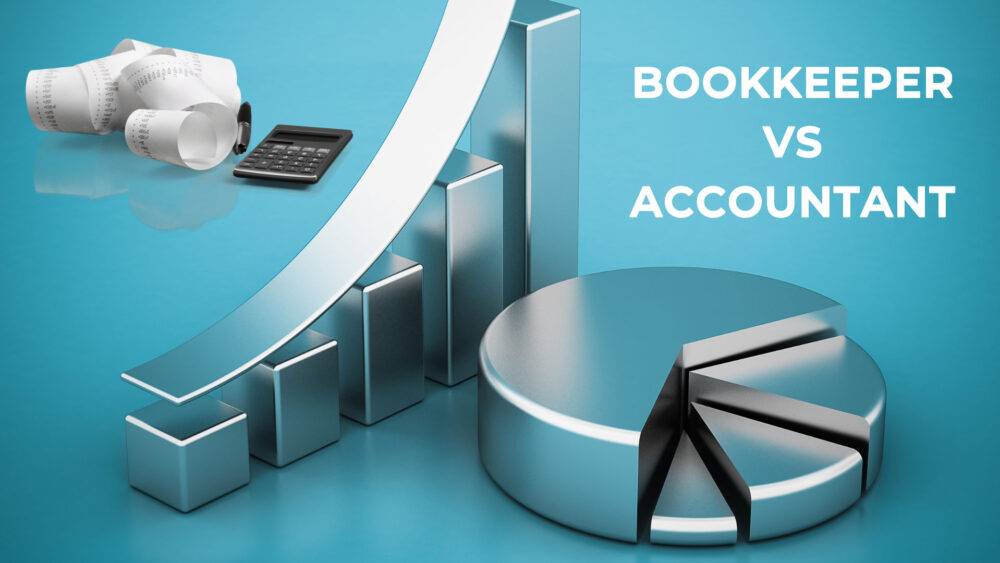In the complex web of financial management, the roles of a bookkeeper vs accountant play vital yet distinct parts. While “bookkeeping” and “accounting” are often used interchangeably, understanding the subtle differences between the two is key to grasping their unique contributions within the financial sphere.
Early forms of record-keeping emerged around 4500 BC. The development of double-entry bookkeeping dates back to the 15th century in Italy, pioneered by Luca Pacioli, who laid the groundwork for modern practices that we now call bookkeepers and accountants.
Today, with technological advancements, these roles continue to adapt, integrating digital tools to streamline processes and provide essential financial insights for businesses worldwide. In our evolving modern industry, comprehending how does accounting differ from bookkeeping is paramount for businesses.
Let’s Start with Definitions
Bookkeeping forms the foundation of the financial process, meticulously recording and organising daily transactions such as purchases, sales, receipts, and payments.
Accounting, however, goes further, analysing and summarising the intricate bookkeeping data, for in-depth financial reports, strategic insights, and financial business decision-making.
The Difference between Bookkeeping and Accounting
Is accounting and bookkeeping the same thing? It’s imperative to recognise that bookkeeping and accounting are not synonymous, and each has its importance in financial responsibilities.
A bookkeeper’s role is to ensure the accuracy and organisation of financial data, which mainly involves recording transactions, managing ledgers, and overseeing real-time accounts payable and receivable, laying the groundwork for the comprehensive analysis conducted by accountants.
It is fundamental to highlight that most businesses underappreciate the significance of engaging a bookkeeper and mistakenly assume that an accountant alone is sufficient for their financial need. However, the reality is that having a bookkeeper plays a vital role in ensuring the accuracy and timeliness of daily financial records throughout the year. Without this function, accountants may struggle to perform their duties effectively, putting the business at risk of making miscalculated decisions moving forward.
Conversely, accountants leverage the data organised by bookkeepers to generate detailed financial statements, perform audits, and provide critical insights that aid in business growth and financial stability. Accounting covers a wide range of financial tasks, including analysis, budgeting, tax preparation, and financial planning.
In essence, while an accountant is essential for strategic decision-making and long-term planning, a bookkeeper is equally indispensable for the day-to-day financial health of a business. This dynamic balance between bookkeeper vs accountant establishes a sturdy financial management system, ensuring accurate records and informed strategies.
The advantages and considerations of outsourcing financial management tasks
The savings that outsourcing usually provides can be quite considerable. While there is a common belief that accounting and bookkeeping should be handled internally within a business, it is essential to question whether you possess the requisite skills and experience for these tasks. Additionally, consider whether your staff has enough experience to cope with the growing demands of accounting responsibilities. To compound the issue, a staggering 62% of small businesses believe they are overpaying their taxes.
Therefore, we want to share 7 benefits of outsourcing your bookkeeping and accounting:
-
Cost-Saving Services
– Contrary to the belief that outsourcing is an unnecessary expense, it is a cost-effective strategy. Businesses outsourcing their accounting seek to reduce costs without sacrificing quality, benefiting from lower rates and avoiding expenses like salaries and office supplies. The pay-as-you-go model ensures you pay only for needed services, avoiding productivity costs tied to in-house staff.
-
Eliminate Time and Costs of Hiring Processes
– The hiring process is a demanding task that requires resources, from planning a recruitment strategy to interviewing applicants. It consumes time and incurs costs, whether handled by the business owner or an employee. Surprisingly, many companies often overlook the time spent searching for a professional accountant or bookkeeper. Yet, time directly translates to costs, making it necessary to factor in when considering outsourcing business processes for potential savings.
-
Saving your Time
– As your business expands, outsourcing tasks like bookkeeping lets you shift your focus from managing money to developing business strategies, increasing revenue, and fostering customer relationships.
-
Expert Accountants and Bookkeepers
– Outsourcing provides the opportunity to hire highly skilled professionals at an affordable price, as outsourced accounting firms continually enhance their expertise by sharing knowledge and participating in ongoing training, offering access to a team of accountants and bookkeepers for a fixed price, ensuring reliability and proficiency in handling various tasks.
-
Scaling Financials Easily
– Financial service providers often offer the flexibility to easily expand your services by adding an extra workforce without the hassle of recruitment, and their hourly charging system allows you to adjust hours as needed without interruption.
-
Automation Technologies
– Many businesses utilise financial automation software to save time and mitigate risks by minimising human errors. Automation enables the process to identify and address potential issues early on. Additionally, it lowers the likelihood of internal fraud. Reputable accounting service providers are well-versed in automation tools such as Xero, Quickbooks, Sage, Visma, Microsoft Dynamics, SAP, and others.If your accountants and bookkeepers still rely solely on Excel sheets, you may be wasting time and money.
-
An accountant is your Advisor
– A proficient accountant and bookkeeper offers guidance on enhancing accounting and bookkeeping efficiency, drawing from experiences, be it in taxation, accounting software, record-keeping, software usage or financial advice.
While some individuals may possess the skills to handle both bookkeeping and accounting tasks, the complexities require separate individuals for accuracy and efficiency in each role. Having dedicated experts for each function can help businesses maintain accurate financial records, gain valuable insights, and make informed decisions crucial for their growth and success.
Tax On Tax Off offers management of your bookkeeping, BAS/IAS preparation and lodgement, and accounts payable/receivable. Contact us for a no-obligation consultation to discuss your financial management needs.


